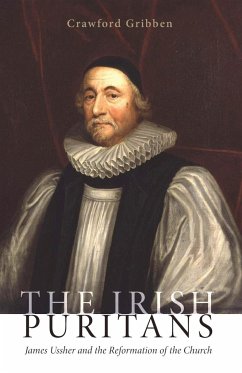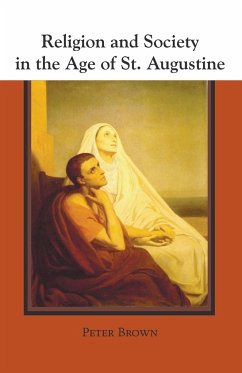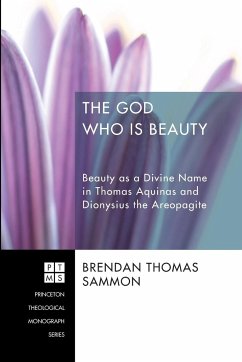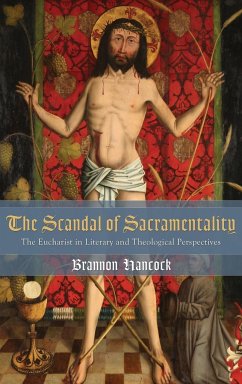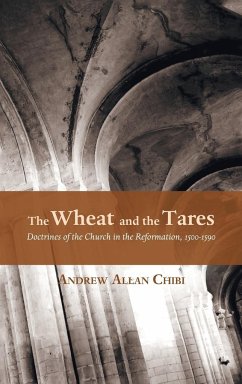
The Wheat and the Tares
Versandkostenfrei!
Versandfertig in 1-2 Wochen
61,99 €
inkl. MwSt.
Weitere Ausgaben:

PAYBACK Punkte
31 °P sammeln!
In 1500 Christians knew that God gave them the church to shepherd believers toward salvation and that it was centered at Rome and ruled by a pope. Today, that church is but one of forty thousand Christian denominations, each with distinctive structures and doctrines. How did this happen? Then, as now, all aspects of the church--from its divine mission to its offices and operations, hierarchy, and bureaucracy--were of interest to theologians, thinkers, and troublemakers alike, but for ages there had been satisfaction with the status quo. In the late Renaissance this gave way to frustration and ...
In 1500 Christians knew that God gave them the church to shepherd believers toward salvation and that it was centered at Rome and ruled by a pope. Today, that church is but one of forty thousand Christian denominations, each with distinctive structures and doctrines. How did this happen? Then, as now, all aspects of the church--from its divine mission to its offices and operations, hierarchy, and bureaucracy--were of interest to theologians, thinkers, and troublemakers alike, but for ages there had been satisfaction with the status quo. In the late Renaissance this gave way to frustration and heated debate, as some people wanted fewer clerical controls over their lives, and others sought a church more representative of its purest, earliest form. Ecclesiology (the doctrine and theory of the church) became a major controversy separating not only Roman Catholics from emerging Protestants, but also Protestants from one another. In the writings of the various reformers, the same issues surfaced repeatedly. Jesus's parable of the Wheat and the Tares was discussed often as an image of the church, as reformers sought to rediscover the purity of the church as God's gift. This book uses the words of a range of reformers to explain how the one church began to divide into the many. ""Chibi's book is a study of the church and ecclesiology in the sixteenth century. He starts with the medieval church under the pope, and then considers the reformers, the Reformation churches and Counter-Reformation churches. Jesus' parable of the Wheat and the Tares . . . is applied to the churches--were the tares allowed to grow alongside the wheat, or did the church try to weed them out? This is a readable book for anyone interested in the church and history."" --Ralph S. Werrell, Honorary Research Fellow, University of Birmingham ""What church would best reflect God's promise of salvation through Christ, and how should it be governed and relate to the world? These are the ecclesiological issues that became central to Reformation debates in early modern Europe. Andrew Chibi revisits them in this clearly written and lively text, which demonstrates why the processes of reformation created a plurality of protestantisms."" --Mark Greengrass, Emeritus Professor of History, University of Sheffield Andrew Allan Chibi, whose work has appeared in many scholarly journals, is a freelance scholar and former Lecturer in Early Modern Europe at Leicester University. He is the author of The European Reformation (1999), Henry VIII's Bishops (2003), and The English Reformation (2004).




